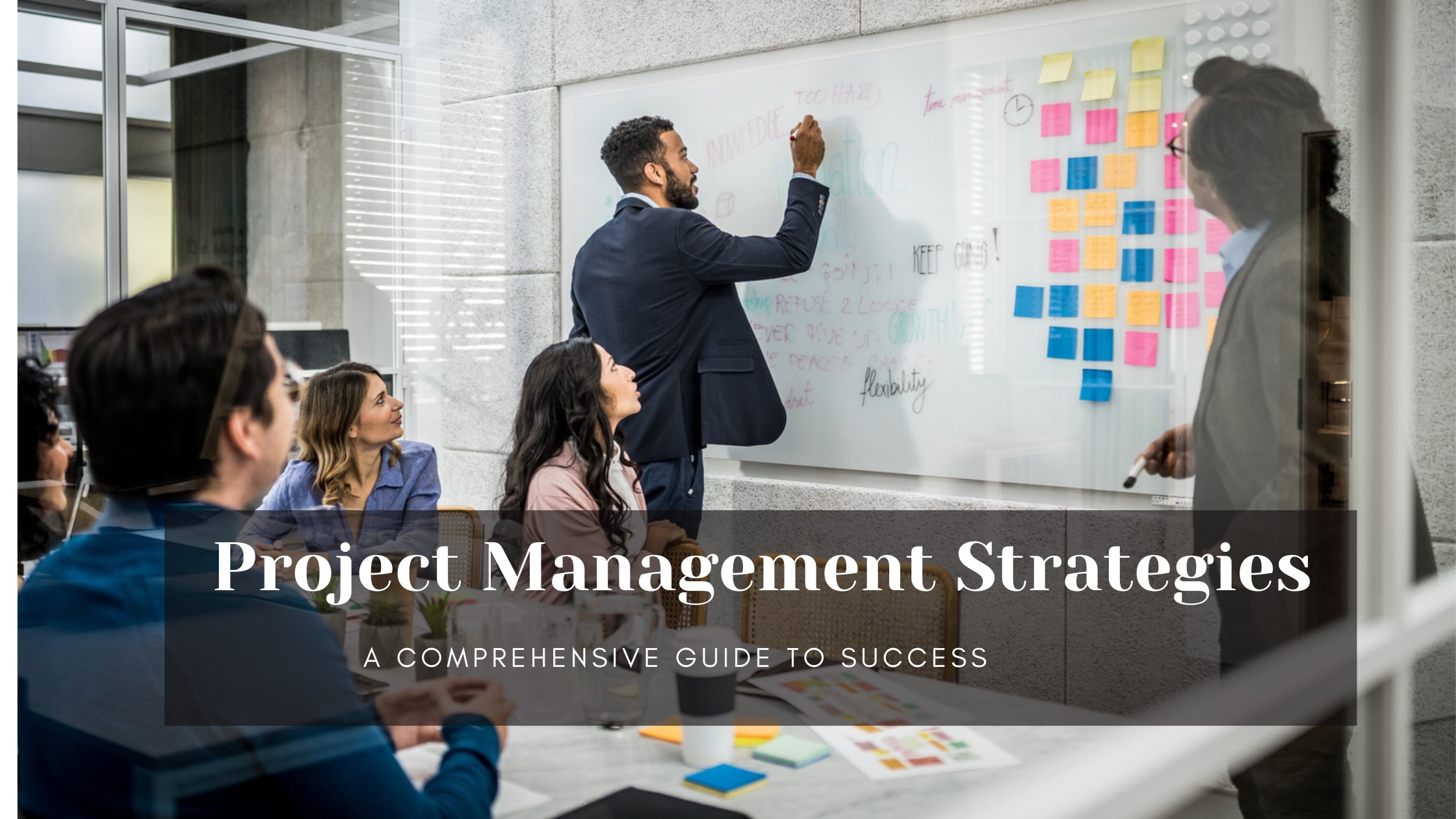

When preparing for a job interview, many candidates focus on their responses to common questions like “Tell me about yourself.” However, asking the right questions is equally important. It shows your interest in the position and helps you gather valuable information about the company and its culture. In this blog, we will explore smart questions to ask in a job interview that will not only impress your potential employer but also provide you with insights to make informed decisions about your career path.
Before diving into specific questions, here are some top tips to consider when asking questions during a job interview:
Be Prepared: Research the company and its culture. Understand its values, mission, and recent news. This will help you ask informed questions that show your genuine interest.
Listen Actively: Pay attention to the interviewer’s responses. This will help you ask follow-up questions and engage in a meaningful conversation.
Tailor Your Questions: Customize your questions based on the position and the information shared during the interview. Avoid generic questions that can be answered through a quick Google search.
Balance Your Questions: While it’s important to gather information, ensure your questions are not overly negative or focused solely on salary and benefits.
Be Respectful of Time: Keep your questions concise. Respect the interviewer’s time and ensure you cover important topics.
Summary: Asking questions during a job interview is crucial. Be prepared, listen actively, tailor your inquiries, balance your questions, and respect the interviewer’s time.
Training and professional development opportunities are vital for your growth in any role. Here are some insightful questions to consider:
What does the onboarding process look like for new employees?
Understanding the onboarding process helps you gauge how well the company integrates new hires.
What opportunities are available for ongoing training and development?
This question shows that you are invested in your growth and want to understand how the company supports employee development.
Are there mentorship programs available within the organization?
Mentorship can be a great way to learn and grow. This question helps you discover if there are opportunities to connect with experienced professionals.
How does the company support employees in pursuing additional certifications or education?
This question helps you understand the company’s commitment to investing in its employees’ education and professional growth.
What skills do you think are most critical for success in this role?
This question allows you to gain insights into the skills you should focus on developing.
Summary: Asking about training and professional development can reveal the company’s commitment to employee growth. Consider questions about onboarding, ongoing training, mentorship programs, support for education, and critical skills for success.
Understanding how your performance will be measured is essential for your success in a new role. Here are some important questions to consider:
What metrics will be used to evaluate my performance?
Knowing the metrics can help you understand what is expected and how success is defined.
How often are performance reviews conducted?
This question gives you insight into how regularly you will receive feedback and how performance management is structured.
What does a successful first year in this role look like?
This question helps you visualize the expectations and goals for your initial period in the position.
Who will I be working with closely, and how will our performance be measured as a team?
Understanding team dynamics and evaluation criteria can give you a better perspective on collaboration and success.
What is the company’s approach to addressing underperformance?
This question helps you understand how the organization handles challenges and supports its employees.
Summary: Knowing how your success will be evaluated is crucial. Ask about performance metrics, review frequency, first-year expectations, team performance, and approaches to underperformance.
Asking questions about the interviewer can create a more personal connection and provide insights into their experience. Consider these questions:
What do you enjoy most about working here?
This question helps you understand what makes the company special from an insider’s perspective.
How long have you been with the company, and what roles have you held?
Knowing the interviewer’s background can provide insights into the company’s culture and stability.
What challenges have you faced in your role, and how did you overcome them?
This question allows the interviewer to share their experiences, which can help you understand the realities of the position.
How would you describe the management style of the team?
Understanding management styles can give you a sense of how the team operates and what to expect.
What advice would you give to someone starting in this role?
This question provides valuable insights and tips from someone with firsthand experience.
Summary: Engaging with the interviewer can create a more personal connection. Consider asking about their enjoyment of the company, their tenure and roles, challenges faced, management style, and advice for new employees.
Understanding the company as a whole is crucial for making informed career decisions. Here are some key questions to ask:
What are the company’s long-term goals?
This question helps you understand the vision and direction of the company.
How does the company foster innovation and creativity?
Understanding how the company encourages new ideas can be crucial for your engagement and growth.
What is the company culture like?
This open-ended question allows you to gauge the environment and values of the organization.
How does the company support work-life balance?
Work-life balance is essential for many employees, and this question can provide insights into the company’s policies.
What recent successes or challenges has the company faced?
This question gives you context about the company’s current situation and how it is adapting.
Summary: To understand the company better, ask about its long-term goals, innovation practices, culture, work-life balance, and recent successes or challenges.
Company culture significantly impacts job satisfaction and productivity. Consider asking these creative questions:
Can you describe a typical day in the office?
This question helps you visualize the work environment and daily interactions.
What kind of social activities does the company organize?
Understanding social dynamics can give you insight into team bonding and morale.
How does the company celebrate successes?
Knowing how achievements are recognized can indicate how much the company values its employees.
What is the most unique aspect of the company culture?
This question encourages the interviewer to share distinctive cultural elements.
How does the team handle conflicts or disagreements?
Understanding conflict resolution practices can give you insights into team dynamics.
Summary: To gauge company culture, ask about typical workdays, social activities, celebration of successes, unique cultural aspects, and conflict handling practices.
After the interview, knowing what to expect is crucial. Here are some questions to ask about the next steps:
What is the timeline for making a decision about this position?
This question helps you understand when you can expect feedback.
Will there be additional interviews or assessments?
Knowing if there are more steps in the process can help you prepare.
How do you typically communicate updates to candidates?
Understanding communication methods can set expectations for follow-up.
Is there anything else you need from me to assist in the decision-making process?
This question shows your willingness to provide any additional information needed.
When can I expect to hear back from you?
This straightforward question clarifies the timeline for feedback.
Summary: Knowing the next steps is essential after an interview. Ask about decision timelines, additional assessments, communication methods, additional information, and follow-up expectations.
While it’s important to ask questions, some should be avoided. Here are a few examples:
What does the company do?
This shows a lack of preparation and research.
Can I work from home?
Avoid asking about remote work before understanding the company’s culture and policies.
What is the salary for this position?
While important, discussing salary too early can seem opportunistic. Wait until an offer is made.
Are there any benefits?
Focus on questions that show interest in the role before discussing benefits.
How quickly can I get promoted?
This can come off as presumptuous. Focus on performance and growth opportunities instead.
Summary: Avoid questions that show lack of preparation, jump straight to benefits, or make presumptuous assumptions about promotions and salary.

If you’re considering buying a life insurance policy, it’s crucial to understand when it actually becomes active. This detail can make a big difference, especially if something unexpected happens soon after applying. So, when does a life insurance policy typically become effective in the USA? In this blog, we’ll break it down in simple terms to help you grasp all the key information.
When it comes to life insurance policies, the effective date is essentially the moment the coverage starts. It’s the point from which your beneficiaries become eligible for a payout if something were to happen to you. Knowing when a life insurance policy becomes effective can prevent confusion and ensures that your family is financially protected at all times.
A clear understanding of this will help you:
In the United States, life insurance policies do not immediately go into effect upon application. Several steps and factors determine when a life insurance policy becomes effective:
Your life insurance policy begins with an application. However, submitting an application doesn’t mean your policy is active right away. The insurer needs time to review your details and process the application.
Your policy’s effective date often hinges on the payment of the first premium. Even if all documents are submitted and underwriting is complete, the life insurance policy typically becomes effective only when the insurer receives your initial premium payment.
If you delay paying the premium, the policy won’t activate, leaving you without coverage.
One common question is, “Is my policy active right away?” The answer often depends on the type of policy and any associated waiting periods. A waiting period is a specific time frame, usually between 30 to 90 days, during which coverage limitations might apply.
The main reasons insurers impose waiting periods include:
During this waiting period, accidental deaths may still be covered in some policies, but natural or pre-existing medical conditions may not. Always check the specifics of your policy to understand what is covered during the waiting period.
Many people are unaware of the concept of conditional coverage. When applying for life insurance, some insurers offer temporary protection until the final approval. However, this is conditional and based on certain requirements being met.
It’s critical to note that this type of coverage is not the same as full policy activation. It depends on the outcome of the underwriting process and whether you meet all conditions.
Different types of life insurance policies in the USA have varying timelines for becoming effective. Let’s look at the most common types:
Here’s a table summarizing when life insurance policies typically become effective:
| Policy Type | Effectiveness Timeline | Waiting Period | Details |
|---|---|---|---|
| Term Life Insurance | After underwriting and initial payment | 30 to 90 days | Standard policies with comprehensive coverage |
| Whole Life Insurance | After initial payment and approval | 30 to 90 days | Includes cash value accumulation |
| Simplified Issue Life Policy | Faster activation with basic approval | Minimal or None | No full medical exam required |
| No-Medical Exam Policies | Immediate if requirements are met | None | Requires only basic information |
It depends on the type of policy. On average, it takes 3 to 6 weeks for a policy to become effective after the application is submitted and the initial premium is paid.
Some insurers offer immediate coverage if you meet their requirements and opt for a no-medical exam policy. However, these often come with limitations on the amount of coverage you can purchase.
Paying the first premium is critical because, in most cases, a life insurance policy typically becomes effective only after the insurer receives the initial payment.
In the USA, when a life insurance policy becomes effective is a key piece of information for policyholders. This timeline is affected by several factors such as application approval, the underwriting process, payment of the initial premium, and any waiting periods. Different types of policies have different timelines, and understanding these differences can help you make an informed decision. When considering life insurance, always ask your insurer about specific dates and processes to avoid confusion. It’s vital to ensure that your family is covered when they need it most, and understanding your policy’s effective date is the first step in securing that protection.

Transferring a car loan to a family member might sound like a simple process, but it involves a series of important steps. If you’re looking to transfer your car loan to your son, daughter, spouse, or any other family member, you must ensure you follow the right procedure. This guide will walk you through every step you need to take, making it easy to understand and act upon.
There are several situations where transferring a car loan might be a good idea. Here are some common reasons:
A car loan transfer involves transferring the financial responsibility of the loan to another person. This means that the new owner takes over the car loan payments and assumes all obligations tied to the loan. Transferring a car loan to a family member can be an act of generosity or a practical move if the family member needs a vehicle.
Before diving into the process, it’s essential to understand whether it’s possible to transfer a car loan to a family member. While transferring a car loan isn’t always straightforward, it is possible if the lender allows it. Different lenders have different policies, so the first step is to check with your current lender if they permit a car loan transfer.
Here is a step-by-step breakdown of how to transfer a car loan to a family member:
The first step is to thoroughly review your existing car loan agreement. Look for clauses that mention loan transfers, assumptions, or refinancing. This will give you a good idea of whether a loan transfer is even possible.
After checking your loan agreement, reach out to your lender and inquire about their car loan transfer policy. Ask if it’s possible to transfer the car loan to a family member and if there are any specific requirements.
Before transferring the loan, make sure your family member’s credit score meets the lender’s requirements. Lenders typically require a strong credit history to approve a car loan transfer.
Once your family member’s eligibility is confirmed, you’ll need to submit a formal car loan transfer request to your lender. This involves filling out the necessary forms and paperwork.
If the lender does not allow a direct loan transfer, another option is to refinance the car loan in your family member’s name. Refinancing means applying for a new loan that covers the balance of the current one.
After the loan transfer is approved, make sure to update the car’s title with the relevant Department of Motor Vehicles (DMV). This step officially transfers the ownership of the vehicle to your family member.
Complete the transfer process by reviewing all paperwork and confirming that your family member is the new loan holder and registered owner of the vehicle.
Transferring a car loan isn’t as simple as handing over the keys. There are several requirements that both you and your family member need to meet:
The most crucial requirement is lender approval. Not all lenders allow car loan transfers, and those who do have specific conditions to meet.
Your family member needs to pass a credit check and meet the lender’s eligibility criteria. A strong credit score and stable financial history are essential.
Lenders may also ask for income verification to ensure that your family member can handle the monthly payments.
Both you and your family member will need to fill out and sign specific forms, including transfer requests and loan agreements.
Before transferring a car loan to a family member, it’s crucial to understand the advantages and potential pitfalls.
Yes, you can transfer your car loan to someone else, but it depends on the lender’s policy. They typically require the new borrower to meet specific financial criteria.
Absolutely! Many people transfer car loans to family members, such as spouses, children, or siblings, if the lender allows it.
If your lender doesn’t allow a direct loan transfer, you can consider refinancing the loan in your family member’s name.
Yes, after transferring the car loan, it’s necessary to update the car title to reflect the new owner’s details. This step is handled through the DMV.
Transferring a car loan won’t impact your credit score directly. However, if there’s a co-signer arrangement, missed payments by your family member could indirectly impact your credit.
Transferring a car loan to a family member is a thoughtful way to help your loved ones while passing on the responsibility of the car loan. While the process involves careful consideration and the lender’s approval, it can be a seamless transition if approached correctly. Make sure you understand your lender’s policy, check your family member’s eligibility, and complete all required paperwork. By following the steps mentioned above, you’ll know exactly how to transfer a car loan to a family member and avoid any complications. It’s all about communication, planning, and following through on the required procedures. Whether you’re passing on the car to your son, daughter, or spouse, a successful car loan transfer can benefit both parties. So take the time to review the requirements, get the lender’s approval, and transfer the car loan with confidence!

Studying in the USA is a dream for many international students. With a diverse range of programs, high-quality education, and top universities, the USA is a popular choice. But before you can begin your journey, you need to know which exams are required to study in the USA. There are several entrance tests and English proficiency exams that you may have to take, depending on the level and field of study. Let’s dive into these exams, their importance, and tips on how to ace them!
The US education system is designed to ensure that all incoming students are well-prepared. That’s why standardized tests are a critical part of the admissions process. These exams include college entrance exams, language proficiency tests, and specialized tests for professional and graduate programs. Understanding the exams required to study in the USA will give you a head start.
The exams required to study in the USA can be broadly divided into two categories:
If you are an international student and English is not your first language, you will need to prove your English proficiency through tests like:
For students planning to study undergraduate programs, here are the college entrance exams you should know:
If you’re aiming for postgraduate studies, several exams are required to meet the masters in USA requirements:
In addition to regular entrance exams, there are some competitive exams in the USA for students planning to pursue professional programs or specific career paths:
It’s essential to know which exam is required for study in the USA based on your field of study. Below are some guidelines:
One common question is, “Is GRE necessary for masters in USA?” While the GRE is a standard requirement for most master’s programs, some universities and courses may waive the requirement based on your academic profile. Therefore, check the specific requirements of your chosen university.
If you’re aiming for the best universities in USA for MS, competitive scores in the GRE or GMAT will be critical. Universities like MIT, Stanford, Harvard, and Berkeley have high expectations and require students to excel in these exams.
Q: What are college entrance exams in the USA?
A: College entrance exams like SAT and ACT are essential for undergraduate admissions in the USA. They test critical thinking, mathematics, and reading skills.
Q: What is the purpose of the GRE?
A: The GRE is a standardized test required for most graduate programs. It evaluates your verbal reasoning, quantitative reasoning, and analytical writing skills.
Q: Are English proficiency tests necessary?
A: Yes, if English is not your first language, universities require tests like TOEFL, IELTS, or PTE to assess your language skills.
Q: Can I waive the GRE or GMAT?
A: Some universities may waive the GRE or GMAT based on your academic achievements or work experience. It’s best to check directly with your target university.
Q: How long are these test scores valid?
A: Most test scores, like GRE, GMAT, TOEFL, and IELTS, are valid for two to five years. Make sure your scores are valid when applying.
Q: Which exam is required for studying in the USA?
A: For undergraduate programs, you’ll need to take the SAT or ACT. For graduate programs, the GRE and GMAT are popular choices.
Q: What is the college entrance exam called?
A: The main college entrance exams in the USA are the SAT and ACT.
Q: Are there entrance exams for science majors?
A: Yes, science majors might need to take the SAT, ACT, or GRE, depending on the program level.
Q: Is the GRE necessary for masters in the USA?
A: For many programs, the GRE is essential, but some may offer waivers or accept alternate tests.
Q: What tests do colleges look at for admissions?
A: For undergraduate admissions, colleges typically look at SAT or ACT scores, while for graduate programs, the GRE and GMAT are essential.
Understanding what exams are required to study in USA is the first step toward fulfilling your academic aspirations. Whether you’re pursuing an undergraduate or a postgraduate program, having a clear idea of the required exams will make your journey smoother.

Networking events can be a goldmine of opportunities if approached with the right questions. But what makes a question “right”? This blog dives deep into great networking questions, how to ask for a networking meeting, and what to ask in a networking call to make the most out of your interactions. Whether you’re new to networking or a seasoned professional, the right questions can open doors to new relationships, partnerships, and opportunities. This guide explores great networking questions that cover job-specific, company-specific, career-specific, industry-specific, productivity, event-specific areas, and more. By asking thoughtful questions, you can foster deeper connections and leave a lasting impression.
Curiosity is the secret sauce to building genuine connections at networking events. When you ask questions with genuine curiosity, you demonstrate interest in the other person’s experience and expertise. The right questions lead to deeper connections because people appreciate when you’re interested in what they have to share.
While networking, you are more likely to be remembered if you ask questions that show you’re paying attention. By digging deeper with intentional inquiries, you demonstrate that you value their insights and opinions.
Preparation is essential for effective networking. Laying the groundwork includes knowing the types of questions to ask and having a clear objective for each conversation. Understanding whether your questions are job-specific, company-specific, or career-specific can help keep the discussion relevant.
Here are 10 job specific questions you can use to gain valuable insights:
Here are 10 company specific questions to help you learn about a business:
Here are 10 career specific questions to ask professionals about their career paths:
Here are 10 industry specific questions to explore industry trends and challenges:
Here are 10 productivity related questions to learn about work habits and strategies:
Here are 10 event specific questions to ask at networking events:
Here are 10 virtual networking questions for online settings:
Here are 10 questions to ask recruiters during an information interview:
Here are 10 unique questions to make an impression:
Asking the right questions is just the beginning. Probing deeper by asking follow-up questions shows your genuine interest and leads to more engaging conversations. Remember to listen actively and be open to new perspectives.
When requesting a meeting, keep your message clear and respectful. Express your interest in the person’s experience and state why you’d like to connect. For example, you could say, “I really enjoyed our conversation and would love to continue it over a coffee if you’re open to it.”
Keeping your contributions relevant and asking engaging follow-up questions based on what the other person shares is key. This approach shows that you’re not only listening but also actively participating in the conversation.
Driving the conversation with well-placed questions keeps the dialogue flowing and helps build deeper connections. It shows that you’re interested in more than just a surface-level exchange.
When networking with entrepreneurs, you often discover their passion, resilience, and creativity. It’s common to hear stories of unexpected challenges and innovative solutions that shaped their journey.
Is Consumer Services a Good Career Path? A Complete Guide
Top Career Development Questions to Ask Your Employees, Yourself & Your Company
Sales Questions: How to Ask the Right Questions
Why Communication Questions Are Important for Personal and Professional Growth
51 Self-Reflection Questions- An Exercise for Student Growth
Top Leadership Interview Questions Wise Responses
Deep Questions for Meaningful Conversations
Top career Questions to ask someone you admire
Questions on Personal Development to Ask Yourself
Great Questions to Ask at a Networking Event

Project management is about planning, executing, and overseeing the projects in order to achieve specific goals within a decided timeline and budget. Its significance relies in its ability to match projects with the business’s set objectives to ensure that resources are utilized efficiently and effectively. Let’s explore various project management strategies, leading to successful project completion to improve organizational performance.
Having a well-defined project management plan is essential for enhancing results. It guarantees that project objectives are in line with business goals, promoting a shared focus for all team members. Efficient project planning strategies not only set clear expectations but also improve accountability, resulting in improved project management objectives.
Having a grasp of the crucial stages of project management is vital for achieving success in implementation:
These stages make up the core of the project management lifecycle, guaranteeing that projects are finished as scheduled and within the financial limits.
These are various strategies for a successful project management:
Agile Project Management Strategy
Agile approaches like Scrum and Kanban focus on adaptability and incremental advancement. This method is especially advantageous for handling complicated projects with changing needs, enabling teams to adjust rapidly to modifications. Implementing Agile project management can greatly improve responsiveness and productivity.
Waterfall Project Management Strategy
The Waterfall methodology provides a systematic approach requiring completion of each phase before advancing to the next. This linear model is perfect for projects with clearly outlined needs and few anticipated modifications. Knowing the appropriate situations in which to implement **Waterfall project management** can result in successful implementation.
Hybrid Project Management Strategy
Merging Agile and Waterfall methods forms a **hybrid project management** strategy that provides flexibility and control. This approach meets various project requirements, allowing teams to make use of the advantages of both methodologies.
Risk Management Strategy in Project Management
Identifying and managing potential risks is crucial for the achievement of a successful project. Successful risk management includes evaluating possible dangers and creating proactive plans using resources such as risk registers and SWOT analysis. Enforcing strong **project risk management** practices can protect against unexpected obstacles.
Resource Management and Allocation Strategies
Efficient resource management is essential for maximizing utilization of personnel, machinery, and funds. Balancing workloads is important to prevent overallocating tasks, which helps team members stay productive while avoiding burnout. Having a good grasp of resource allocation strategies improves project efficiency as a whole.
Communication Strategies for Successful Project Management
Effective communication routes are crucial for ensuring all stakeholders are kept up-to-date. Consistent communication using tools such as project management software or meetings promote transparency and collaboration within the team. Utilizing efficient project communication strategies can greatly enhance team interactions.
Stakeholder Management Strategies
Recognizing stakeholders such as clients, team members, and executives, and effectively meeting their expectations is essential for achieving project success. Securing stakeholder approval at every stage of the project process is vital for attaining successful results in managing project stakeholders.
Time Management and Scheduling Strategies
Developing accurate schedules with key events aids in maintaining project deadlines. Using tools such as Gantt charts can help with efficient scheduling, guaranteeing that deadlines are achieved while maintaining high quality. Becoming proficient in project time management is crucial for delivering projects on time.
Quality Management in Project Management
Maintaining quality standards throughout the project is non-negotiable. Implementing quality control measures ensures that deliverables meet established criteria, promoting continuous improvement within teams. Focusing on **quality management in projects** enhances overall client satisfaction.
Budgeting and Cost Management Strategies
Ensuring quality standards are upheld throughout the project is essential and not up for discussion. Enforcing quality control measures guarantees that final products meet set standards, fostering ongoing enhancement within teams. Emphasizing cost management strategies improves overall client happiness.
Leadership and Team Management in Project Management
Effective leadership is crucial in inspiring teams to work together towards shared objectives. Establishing strong teams involves promoting cooperation and building confidence among members, leading to increased efficiency and motivation for successful project team leadership.
Evaluating Project Performance and Success
Creating KPIs enables teams to gauge success by assessing factors such as punctuality, sticking to budget, and meeting quality benchmarks. Organizing post-project reviews helps in gaining insights from past experiences, enhancing future tactics to enhance evaluation of project success.
In conclusion, it is essential to implement efficient project management strategies to ensure successful project delivery aligning with organizational objectives. Teams can improve their performance significantly by adopting these strategies, which include risk management and stakeholder engagement. When starting your next project, think about incorporating these strategies for improved results and increased success in your pursuits.

Independent thinking is the ability to form opinions and make decisions based on personal reasoning rather than relying solely on external influences. It plays a crucial role in personal growth and decision-making, allowing individuals to navigate life’s complexities with confidence and clarity. Independent thinkers are those who embrace their unique perspectives and challenge the status quo, fostering an environment where creativity and critical thought thrive. In a world often swayed by conformity and external validation, understanding the significance of independent thought is vital for personal empowerment and societal progress.
Independent thinking significantly enhances critical thinking skills, which are essential for effective problem-solving and decision-making. When individuals engage in independent thought, they learn to analyze information from multiple angles, weigh evidence, and draw conclusions based on logical reasoning.
For example, consider a student who learns to approach a controversial topic by researching various viewpoints rather than accepting the popular opinion. This critical analysis fosters a deeper understanding of the subject matter, enabling the student to formulate their own informed opinions. Independent thinkers often ask probing questions, leading to discussions that encourage others to think critically as well.
Benefits of Critical Thinking:
A real-world example can be seen in businesses where independent thinkers drive innovation. For instance, a marketing team that analyzes consumer behavior independently can create more targeted and effective campaigns, leading to increased engagement and sales.
Independent thinkers are often the catalysts for creativity and innovation. By challenging norms and questioning established practices, they open the door to new ideas and solutions. Creativity flourishes in an environment where individuals feel free to express their unique thoughts without fear of judgment.
Consider the tech industry, where many groundbreaking innovations have stemmed from independent thinking. Companies like Apple and Tesla were founded on principles of innovation and creativity. Their leaders—visionaries who dared to think outside the box—have transformed industries and set new standards for excellence.
Benefits of Creativity and Innovation:
Embracing independent thinking is integral to personal growth and development. It empowers individuals to embark on journeys of self-discovery, fostering a sense of autonomy and self-confidence.
When individuals cultivate independent thought, they begin to understand their values, beliefs, and passions. This self-awareness leads to greater personal fulfillment and purpose.
Many successful people attribute their achievements to their ability to think independently. For instance, an artist who follows their unique vision, rather than conforming to popular trends, may create work that resonates deeply with audiences and stands the test of time. By embracing their individuality, they inspire others to do the same.
Benefits of Personal Growth:
Independent thinkers are typically more resilient and adaptable, equipped to face adversity and change with a positive mindset. The ability to think independently allows individuals to navigate challenges without being swayed by fear or uncertainty.
Consider the example of a small business owner who encounters setbacks. An independent thinker might view challenges as opportunities for growth rather than obstacles. By analyzing the situation and adapting their approach, they can pivot their business strategy, ultimately leading to success.
Benefits of Resilience:
Independent thinking nurtures confidence in one’s abilities and judgments. As individuals make decisions based on their reasoning and experiences, they develop a sense of self-trust that is crucial for personal and professional growth.
By consistently making independent decisions, individuals reinforce their belief in their capabilities. For instance, someone who navigates a challenging work project through their unique perspective is likely to gain confidence from the successful outcome.
Benefits of Confidence:
Independent thinking promotes open-mindedness, encouraging individuals to respect diverse viewpoints and foster inclusivity. This quality is essential in today’s globalized world, where collaboration and understanding are key to success.
By engaging with various perspectives, independent thinkers contribute to a culture of tolerance and progress. They understand that differing opinions can lead to richer discussions and more innovative solutions.
Benefits of Open-Mindedness:
Independent thinking often leads to questioning the status quo and driving societal change. Throughout history, many significant advancements have stemmed from the courage of individuals willing to challenge established norms.
Consider figures like Martin Luther King Jr. and Albert Einstein, who challenged societal norms and contributed to significant advancements in civil rights and science, respectively. Their independent thinking inspired countless others to think critically and pursue change.
Benefits of Challenging the Status Quo:
In summary, the importance of independent thinking cannot be overstated. It enhances critical thinking skills, fosters creativity and innovation, promotes personal growth, strengthens resilience, cultivates confidence, encourages open-mindedness, and challenges the status quo. As individuals learn to think independently, they contribute to both their personal development and the betterment of society as a whole.
Ques 1. What does it mean to develop thinking independence?
Ans: Thinking independence refers to the ability to think for oneself, make decisions based on personal reasoning, and not rely solely on external influences or societal norms.
Ques 2. How can I start developing my thinking independence?
Ans: Begin by practicing self-reflection, questioning your beliefs, seeking diverse viewpoints, and actively engaging in critical thinking exercises.
Ques 3. What are some practical exercises to enhance thinking independence?
Ans: Some effective exercises include journaling your thoughts, participating in debates, challenging your assumptions, and solving complex problems on your own.
Ques 4. Is independent thinking a skill that can be learned?
Ans: Yes, independent thinking is a skill that can be cultivated through practice, self-awareness, and a willingness to learn from different experiences.
Ques 5. How do independent thinkers approach problems differently?
Ans: Independent thinkers analyze problems critically, consider multiple solutions, and trust their judgment rather than conforming to popular opinions or external pressures.
Ques 6. What qualities are common among independent thinkers?
Ans: Common qualities include critical thinking skills, creativity, self-reliance, open-mindedness, and a strong sense of curiosity.
Ques 7. How can independent critical thought impact personal growth?
Ans: Engaging in independent critical thought enhances personal growth by empowering individuals to make informed decisions, build confidence, and develop a deeper understanding of themselves and the world.
Ques 8. Why is independent critical thought essential in today’s society?
Ans: Independent critical thought is vital as it fosters innovation, promotes informed decision-making, and encourages individuals to question the status quo, leading to societal progress.
Ques 9. What are the societal benefits of promoting independent critical thought?
Ans: Promoting independent critical thought leads to a more informed populace, greater tolerance of diverse opinions, and the ability to challenge and address social injustices.
Ques 10. Can independent critical thought lead to better problem-solving?
Ans: Yes, independent critical thought enhances problem-solving by enabling individuals to analyze situations more deeply, consider a range of solutions, and develop innovative approaches to challenges.
What Are the Best Leadership Courses
What are Professional Development Goals
Top Leadership Interview Questions Wise Responses
Why is Professional Development Important?
Personal Development: Unlocking Your Full Potential
Leadership Skills Development: A Comprehensive Guide

Have you ever found yourself debating a topic with a friend and realized you’re both approaching it differently? One of you may be focused on the facts, while the other leans more on feelings or opinions. This difference is the essence of objective vs. subjective reasoning. Understanding this distinction is essential for making better decisions, holding meaningful discussions, and developing critical thinking in everyday life.
Objective reasoning is all about basing decisions and opinions on facts, evidence, and data without personal bias or emotions. It’s the key to logical thinking and ensures that conclusions are consistent and impartial.
Subjective reasoning is rooted in personal opinions, feelings, and interpretations. It’s influenced by individual experiences, emotions, and perspectives, making it unique to each person.
Understanding the differences between objective and subjective reasoning can help you make more informed decisions and communicate effectively.
Critical Thinking: Differentiating between objective and subjective reasoning enhances your critical thinking skills. It helps you analyze situations more thoroughly, question assumptions, and separate facts from emotions or beliefs.
Communication and Debates: Recognizing the distinction between these two types of reasoning leads to more productive conversations and debates. By being aware of when to present facts versus when to acknowledge personal opinions, you can communicate more effectively and respect others’ views.
Decision-Making: In personal and professional contexts, knowing when to rely on objective reasoning and when to consider subjective reasoning leads to more informed decisions. For instance, in business, using objective data to analyze market trends is crucial, while subjective insights might play a role in understanding customer needs.
Bias and Personal Beliefs: Even when aiming for objectivity, personal biases can influence reasoning. It’s easy to unconsciously let your beliefs shape how you interpret facts or evidence.
Grey Areas: Sometimes, the line between objective and subjective reasoning isn’t entirely clear. For example, when interpreting historical events, people might use factual records while also considering cultural perspectives and individual interpretations, creating a mix of objectivity and subjectivity.
Effectively using objective and subjective reasoning depends on the context. Here are a few examples:
Being objective in decision-making means setting aside personal emotions, biases, and opinions to focus solely on facts, evidence, and logic. Let’s look at how you can be more objective with some practical examples:
Gather Relevant Information
Example: Imagine you’re hiring a candidate for a position. Rather than relying on gut feelings or impressions, objectively evaluate their resume, work experience, qualifications, and references. Collect facts from their past achievements, interview performance, and test results to make an informed choice.
Challenge Your Assumptions
Example: Suppose you assume that a colleague’s poor performance in a project is due to their lack of effort. Instead of sticking to this assumption, consider other possibilities like workload pressure, personal challenges, or lack of proper guidance. Challenge your assumptions by looking at the complete picture.
Analyze Facts Over Feelings
Example: You’re tasked with choosing the best supplier for your business. While one supplier may have been friendly and accommodating, objectively compare pricing, delivery timelines, customer reviews, and service agreements to select the most reliable partner based on factual criteria.
Use Clear and Measurable Criteria
Example: You’re organizing an event and need to select a venue. Create a checklist based on objective criteria such as seating capacity, amenities, location, cost, and customer reviews. This allows you to measure each venue objectively, rather than choosing the one that just “feels right.”
Seek Other Perspectives
Example: If you’re considering a business decision, reach out to your team and listen to their insights. You might be focused on the financial benefits of a plan, while a colleague highlights potential risks or customer impacts you hadn’t considered. This collective analysis helps in making a more objective decision.
Take Your Time
Example: You’re under pressure to approve a budget quickly. Instead of rushing, take the time to review the proposed expenditures, verify costs, and consult with team members. This extra time allows you to make a more objective and well-considered decision.
Knowing when to use objective and subjective reasoning can help you navigate different situations effectively:
In Professional Settings
Example: A marketing manager has to analyze the success of an advertising campaign. They rely on objective reasoning by looking at the campaign’s performance metrics, including reach, engagement rates, and ROI. However, they might also apply subjective reasoning to gauge customer sentiments from feedback and reviews, helping them understand the audience’s emotional response to the campaign.
In Personal Relationships
Example: During a disagreement with a friend, you can use objective reasoning to address factual issues (“This is what I said, and here’s why I said it”). However, to understand their feelings and the root of the conflict, subjective reasoning is necessary. It allows you to see the situation from your friend’s perspective and acknowledge their emotions.
In Creative Pursuits
Example: A painter working on a new piece will primarily use subjective reasoning to channel their emotions, interpretations, and experiences into the artwork. However, they might also rely on objective reasoning when choosing the right colors, proportions, and techniques to ensure visual harmony and balance in their work.
In Decision-Making
Example: You’re considering buying a new car. You can use objective reasoning to compare features, safety ratings, and prices across different models. However, your final decision might be influenced by subjective reasoning, like brand loyalty, comfort, and emotional connection to a particular car brand.
In Evaluating Experiences
Example: When reflecting on your career, objective reasoning can help you assess measurable accomplishments like promotions, projects completed, or revenue generated. At the same time, subjective reasoning allows you to evaluate the level of job satisfaction, the meaning you derive from your work, and the emotional fulfillment it provides.
Summary
To sum up, objective reasoning focuses on facts, evidence, and impartial perspectives, while subjective reasoning emphasizes personal interpretations, beliefs, and emotions. Both types of reasoning play vital roles in different aspects of life, from decision-making to communication and critical thinking.
The next time you’re faced with a decision or a conversation, ask yourself: Am I being objective, subjective, or a bit of both? Understanding this distinction allows you to make more informed choices, communicate more effectively, and appreciate differing perspectives. Embrace the balance between objective and subjective reasoning, and watch your critical thinking and problem-solving abilities grow!
Example: If your goal is to make a health decision like choosing the right diet plan, use objective reasoning to check the nutritional values and medical recommendations, while applying subjective reasoning to consider what fits your taste preferences and lifestyle.

Finding the best time to study can be a personal decision influenced by your energy levels, routine, and environment. Whether you prefer the quiet of the morning or the solitude of late night, the answer to when is the best time to study can vary for everyone. In this article, we will dive into the different best times to study and provide tips to help you optimize your study schedule.
Determining what is the best time to study largely depends on your individual preferences. Some people find that their brain functions best in the early morning, while others thrive during the night. Factors such as your body’s natural rhythm, lifestyle, and even diet can influence the ideal study time for you. There is no one-size-fits-all answer to when is the best time to study, but understanding your personal habits can help.
One common debate is whether it is better to study at night or in the morning. Early birds often argue that the morning is the optimal time because the brain is fresh and ready to absorb new information. On the other hand, night owls believe that studying at night provides peace and fewer distractions, allowing for better focus.
Research shows that the best time of day to study depends on your circadian rhythm. Some studies suggest that the brain is more alert and capable of processing information during the late morning, around 10 AM to noon. For others, the afternoon slump makes it difficult to concentrate, making the evening a better time. Still, some argue that the best time to study is the early morning, right after waking up, because the brain is not overloaded with information.
While studying at night has its advantages, it can also disrupt sleep patterns, which are crucial for memory retention. Studying in the morning may offer a more consistent schedule, but some students find it difficult to focus early in the day. Choosing between studying at night vs. morning depends on when you feel the most energetic and alert.
If you’re wondering, is it better to do homework at night or in the morning, the answer will depend on your own habits. Homework requires focus, and for some, the peacefulness of night provides the quiet necessary to complete tasks efficiently. However, the best time to do homework for others may be in the morning, when they can tackle assignments with fresh energy.
There’s no one-size-fits-all best time to study because each person’s brain works differently. What works for one person may not work for another, which is why it’s important to recognize when your energy levels are highest. So, why is there no ideal time of day when all students should study? Simply put, each student’s brain and body operate on their own schedule.
The best time to study for a test can vary based on when you feel most focused. Some students find early mornings perfect for test prep, while others excel at night. What time is the best time to study depends on how alert and attentive you feel at different times of day.
Ques: When is the best time to study for a test?
Ans: The best time to study for a test is when you feel most alert and focused. Some people prefer early mornings, while others find the night more suitable.
Ques: Is it better to study in the morning or night?
Ans: Whether it is better to study in the morning or night depends on your personal preferences. Night owls may find better focus in the evening, while early birds thrive in the morning.
Ques: Why do I study better at night?
Ans: Some people study better at night because there are fewer distractions, and their brain is more relaxed after a long day. Studying at night can offer a sense of solitude that enhances focus.
Ques: Is it better to do homework at night or in the morning?
Ans: It depends on when you feel more focused. Doing homework at night may allow for more quiet time, while mornings can offer a fresh start.
Ques: How many hours should I study each day?
Ans: It’s recommended to study between 4-6 hours a day. However, the number of hours can vary depending on the subject and individual needs.
Ques: Should I study before bed?
Ans: Studying before bed can help retain information. However, avoid cramming, as it may disrupt sleep. Some prefer studying before bed because it allows the brain to process information overnight.
Ques: Is it good to study at night?
Ans: Yes, studying at night can be effective, especially if you are a night owl. However, make sure to maintain a consistent sleep schedule to avoid burnout.
Ques: Does studying in the morning help with retention?
Ans: Yes, many studies suggest that studying in the morning helps with information retention as the brain is fresh and ready to absorb new knowledge.
Ques: Is it better to study the night before or morning of?
Ans: It’s generally better to study the night before a test and review in the morning. This allows time for the brain to absorb the information during sleep.
Ques: How to study for long hours?
Ans: To study for long hours, take short breaks every hour, stay hydrated, and switch subjects to keep your brain engaged. Avoid distractions and maintain focus.
In conclusion, the best time to study will depend on your personal rhythm, daily schedule, and environment. Whether you’re someone who prefers the quiet hours of the night or the peaceful early morning, you can adjust your routine to match your peak performance. Whether you’re studying for a test or doing homework, try out different times of day to see what works best for you.